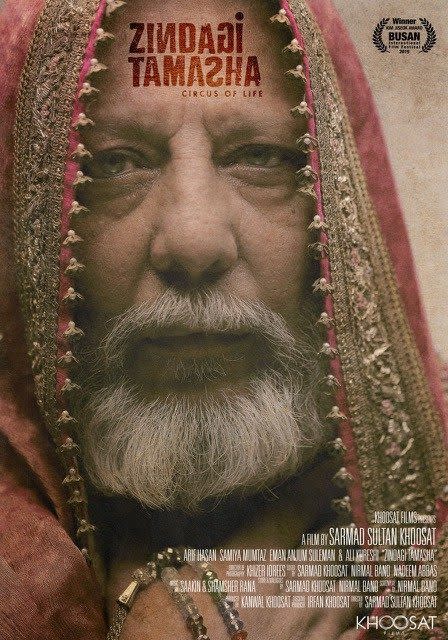Death threats for director of Pakistan's Oscars film banned by hardliners
- Oops!Something went wrong.Please try again later.
- Oops!Something went wrong.Please try again later.

When Sarmad Sultan Khoosat finds out next week if his film has made the Oscars shortlist, even the announcement of a coveted nomination place may be slightly bittersweet. While other entrants in the best international feature category have their work feted by audiences at home, Mr Khoosat's film cannot currently be released in Pakistan.
Zindagi Tamasha, or Circus of Life, may have won awards at international festivals, but a furore from religious hardliners has kept it out of Pakistani cinemas.
Three days before the film was due to be released a year ago, it was instead denounced. The director endured a tumultuous year of death threats and harassment and said he had come to accept it may never get a cinema release in his native country.
“It's been some journey that's all I can say,” he told the Telegraph last week.
His plight is all the more remarkable because his fate has partly echoed that of his protagonist. The low-key, character-driven drama tells of social media judgment descending on a pious, staid man who lets his hair down at a wedding and is filmed dancing.

The video goes viral and the man finds himself ostracised and humiliated among his conservative peers and eventually having to film a second video of apology.
When a two-minute-15 second trailer for the film was released, it was savaged by the influential Tehreek-e-Labaik Pakistan hard-line religious party (TLP), even though members had not seen the full film.
The party objected to the portrayal of the protagonist as a singer of religious poems, and to a brief reference in the trailer to child abuse by clerics.
The TLP complained the film “can cause discomfort to the public and might lead them to deviate from Islam and Prophet (Muhammad)” and must not be released “as it could otherwise be a grave test of the Muslims of the Islamic Republic of Pakistan."
Such is the power of the TLP that the government quickly caved in. The party rose to prominence campaigning against reform to anti-blasphemy laws and its ability to drum up vast crowds has made it a formidable force in Pakistan. As the party threatened mass street protests, the film's release was suspended.
“The state didn't ban the film, they just buckled under the pressure,” Mr Khoosat explained.

Like in his film, Mr Khoosat became the target of persecution by an online mob. He was threatened and his address and private details were leaked.
Pakistan's senate was convened to judge the film and eventually gave it a clean bill of health after a special screening, but it remains in limbo with officials apparently unwilling to give formal permission for the release.
Taking advantage of specially relaxed rules for Oscar qualifications during the pandemic, the film was still able to be entered, after it received a week-long online release.
Hamza Bangash, one of the independent committee which nominated the film as Pakistan's entry, described it as “a beautiful piece of art and a very rare example of contemporary Pakistani cinema that speaks to the condition of the society”.
He said the film illustrated growing intolerance in Pakistani society, but also had messages for the wider world.
“We are living in such interesting times where across the world fascism and extremism is growing in leaps and bounds and this film puts a very Pakistani face to that issue, he said. “A growing culture of intolerance and a shrinking of the margins of free speech.”
Read the full list of Oscars 2021 nominations
